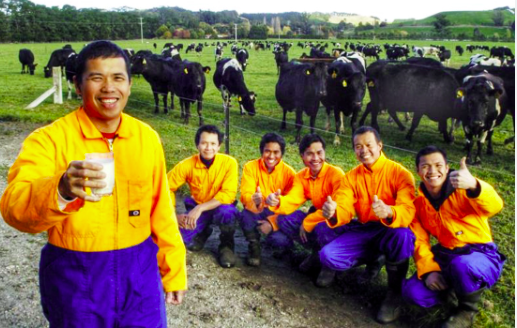Factors Affecting the Salary of a Factory Worker in Taiwan 2022
Factors that affect the salary of a factory worker in Taiwan
There are several factors affecting the salary of a factory worker in Taiwan. The manufacturing industry is globally competitive and employs over half a million people, accounting for 22 percent of all manufacturing employment. It is also a highly competitive sector, with gross profits per hour rising by 359 percent from 2001 to 2015. However, the salaries of factory workers are still relatively low compared to other sectors. The average hourly wage in Taiwan is less than half of the minimum wage in the United States, which is USD 7.25 per hour.
Taiwan’s economy is dominated by small and medium-sized enterprises, accounting for over 97 percent of all firms. According to the National Development Council (NDC), there is a strong correlation between company size and salaries. In 2015, the median monthly salary of an employee in a company with more than 100 employees was NT$51,000, while the median monthly wage for a company with less than 10 employees was less than $30,000.
Despite the fact that Taiwan is still a small island country, its socioeconomic development has allowed the country to have an adequate degree of freedom of choice. For example, Taiwan’s poverty rate is relatively low, at 7.36%. However, recent years have seen an energetic debate about the rising levels of social inequality in Taiwan.
Factory Worker in Taiwan 2022
Taiwan’s market economy is institutionally sound and is characterized by transparent and state-guaranteed rules. There is a comparatively low degree of inequality between male and female workers, and there are no major ethnoreligious conflicts. Taiwan is a democratic society, and social movements play an important role in everyday life.

Despite the recent COVID-19 pandemic, Taiwan’s economy has remained stable. Taiwan’s unemployment rate in 2020 was 3.68%, and its labor force participation rate remained at 59.1%. However, Taiwan’s youth unemployment rate is around 12%.
Taiwan’s media and public are sensitive to political corruption. The government has strict anti-corruption laws and regulations that are aimed at prosecuting officials who commit corrupt activities. It also prohibits bribery by public officials and between private enterprises.
Taiwan’s economy is highly dependent on exports. It is a leading exporter of electronics and IT-technology. Its tariff rates are comparable to those of other industrialized nations. Taiwan is a member of the WTO and follows WTO rules. It has also enacted legislation that allows green energy producers to sell directly to consumers.
Taiwan’s constitution protects the rights of assembly and strikes. The courts are generally fair. However, allegations that the judiciary is too closely aligned with the KMT have been based on no legal evidence. According to the World Values Survey, 56% of Taiwanese have confidence in the judiciary.
Taiwan’s civil society has gained new strength and political relevance over the past two years. As a result, civil society has been actively involved in policymaking. Taiwan’s DPP government has partnered with civil society organizations that push for judicial reform. In July 2020, it implemented legislation that allows lay judges to take part in criminal trials. However, many Taiwanese remain dissatisfied with the pace and scope of judicial reform.
Typical daily routine of a factory worker in Taiwan
In Taiwan, a typical day for a factory worker will start at 5 AM. After breakfast and a shower, the worker will take a shuttle bus to work. The journey usually takes 20 to 30 minutes. The worker must be at the factory by 7:20 AM. His or her day at the factory will last until 7:20 PM, with only two hours of break time.
Factory workers in Taiwan are facing many challenges. Most of them must deal with extremely sensitive products and equipment. They must work with machinery that could break easily, and they need to be skilled. The products they produce are integrated circuits that are crucial to modern technology. They are used in microprocessors, computer memory, amplifiers, and timers. Even small mistakes could mean the loss of millions of dollars.
Taiwan is not known for its manufacturing capabilities, but Taiwan firms have a competitive edge when it comes to producing goods for companies that have built-in demand. This has led to the growth of a number of specialized factories in the country. These factories provide technologies to some of the world’s largest tech companies.
Taiwan’s labor laws protect workers in various ways. For example, the country’s Labour Standards Act establishes a minimum wage for hourly workers. It also specifies working hours, including weekends and holidays. Overtime is also regulated by employment contracts.

Taiwan is a multicultural country with diverse ethnic groups. The population includes aboriginal peoples, Taipeinese, and Chinese from mainland China. Although the population is largely Chinese, the aboriginal groups make up about 2 percent of the island’s total population.
While many Taiwan residents understand that China is working towards unification, others fear that Xi Jinping’s patience will diminish as he approaches the end of his power. Regardless, the situation is not likely to change too drastically. For now, Taiwan residents are content with their lives.
The average day of a factory worker in Taiwan will consist of quality checks, packaging, and unloading trucks. Some jobs will require lifting up to 50 pounds. Another common job will be warehouse workers, which will include heavy machinery operation and inventory control. Although high school education is not a requirement for factory jobs, it is beneficial to have some training in manufacturing.
Factors that affect the salary of a warehouse worker in Taiwan
According to a salary survey, the average gross salary of a warehouse worker in Taiwan is NT$567,786 per year, including bonuses. The average salary ranges from TWD437,831 for entry-level warehouse workers to NT$676,438 for senior warehouse workers. This salary is expected to increase by 14 % in five years.
In Taiwan, wages are relatively low because of the country’s low cost of living. The country also has a high level of business-friendly policies and an attractive business environment. According to the 2020 Ease of Doing Business survey, Taiwan ranked 15th out of 189 countries. Moreover, the country’s export-driven economy is stable. By 2022, its GDP is projected to grow by 3.3%, with a GDP per capita of USD 34,880.

Although the average salary of a warehouse worker in Taiwan is only an average, it may be lower than the average income in Taiwan. In fact, the average salary in Taiwan varies widely depending on the factors that affect income. The average salary includes housing and transportation costs. The median salary is USD 55,625. However, this figure does not reflect the purchasing power of an employee. The cost of living and tax rates also affect purchasing power.
Apply Here For Jobs


